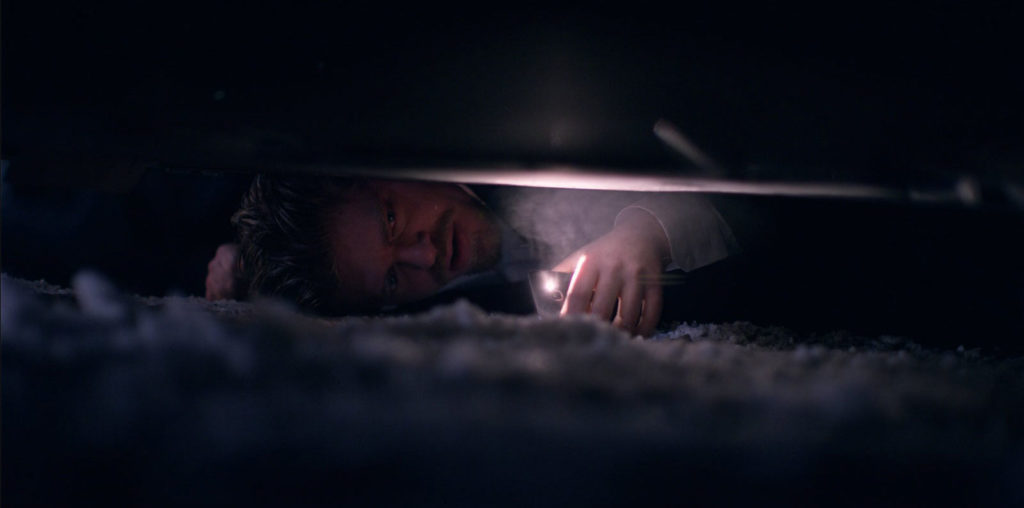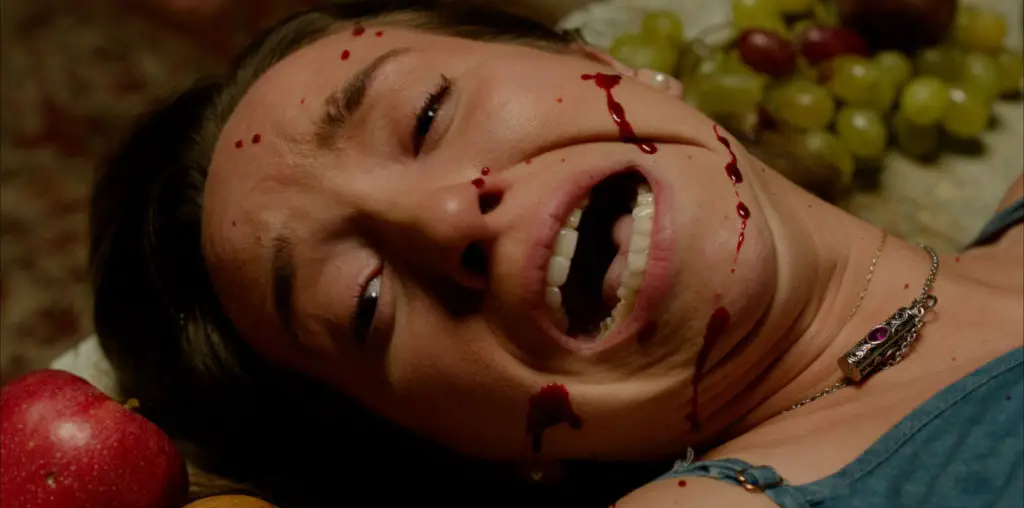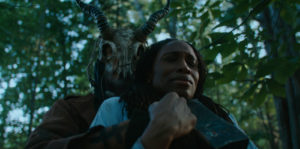
Folk horror is a mainly English genre, with a number of notable entries stemming from some of Britain’s best filmmakers. So, it comes as a refreshing surprise to see it seized upon by director Alix Lambert and screenwriters Matt Dellapina and Sean Christopher Lewis, all from the other side of the pond, in The Woods are Real. But can their story withstand the transplant from the ancient environs of Europe?
We open on a dinner party that resembles an ill-tempered Apple commercial. Its diverse foursome comprises an endlessly caressing gay couple named Caleb (Nick Westrate) and Stan (Jeffrey Omura) and a mixed-race pair, Joba (Matt Dellapina) and Quincy (Chinasa Ogbuagu). Joba is so insubstantial to his black Harvard grad partner that she casually stabs him. This is very off-putting. These are repulsive characters, and one wonders whether the script admires the creative antimatter of DEI or is satirizing it. Quincy’s family runs a ruinous mining operation, and Joba’s makes wristwatches. It’s remarked upon that “little brown hands” make them, but watches are like cars. They don’t tend to get made in poor places. If this is an allegory, I don’t know what for.
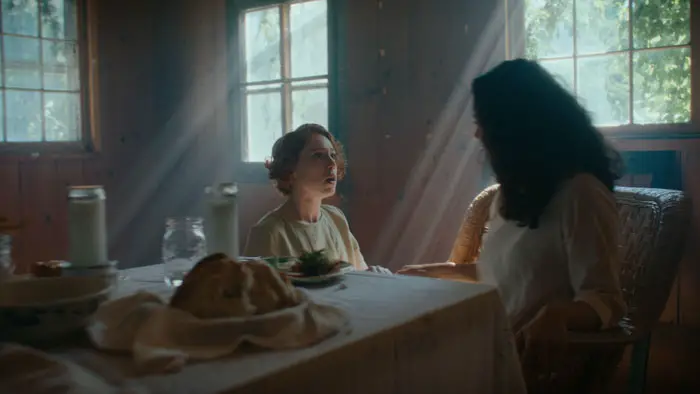
“…the house and their car disappear, leaving them completely exposed and alone in the woods…”
After an argument, Caleb gifts Joba and Quincy with a stay at a retreat that recently invigorated him. The couple drives off to the woods, setting up base in a house filled with odd little anachronisms, such as a century-old gramophone. While they are settling in, the gramophone whirs to life, telling Joba and Quincy they will be killed. They make to leave, and the house and their car disappear, leaving them completely exposed and alone in the woods, with only the jar of maraschino cherries they brought to make Manhattans as sustenance.
The Woods are Real is at its strongest once Campbell Scott makes his appearance as the lunatic Woodsman and minor deity in this domain. The eerie and muscular Scott is the best thing here, playing with pseudo-benevolent mysticism as he torments Joba and Quincy. His appearance is managed creatively, with some genuine flair in the staging from the director; Quincy is held captive at axe point, and the Woodsman whispers lines to her to repeat to a deeply freaked-out Joba across a forest clearing. It’s a crazy scene, and it works well.
Folk horror has true range, and Lambert does a fine job of illustrating that. She bypasses the pagan horrors that are more typical of the genre, instead painting aspects of the ancient Old Testament story of Job within the tight restrictions of forest-bound horror. Its theme comfortably compliments its far-out cousins, such as Ben Wheatley’s gonzo civil war story A Field in England and the idolatrous scare fest The Wicker Man. Its dark philosophizing has a sense of genuine inspiration and heartfelt inquiry.
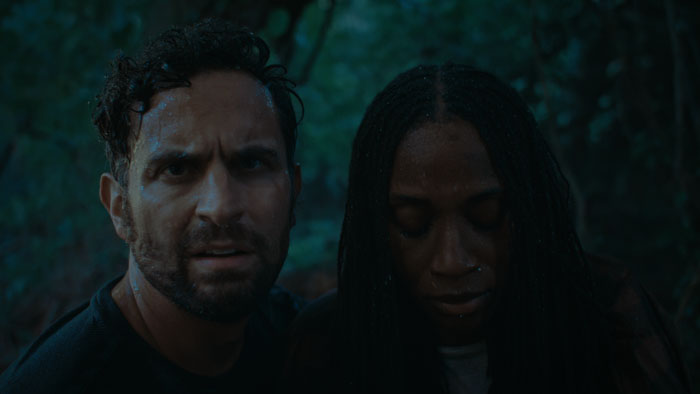
"…it is nice to see Folk Horror crossing the Atlantic..."
